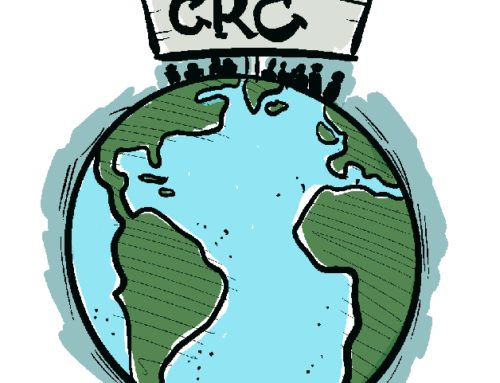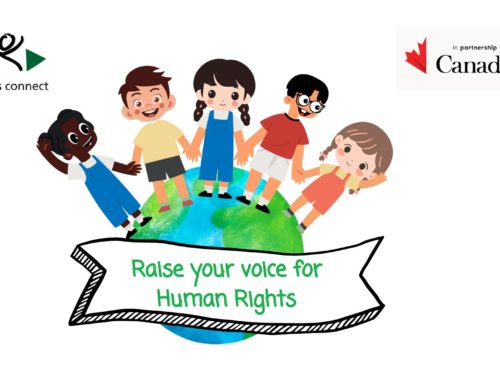Child Rights Connect and its members addressed high-level representatives of the three UN pillars to call for better mainstreaming of a child rights-based approach in the work of the United Nations, including through establishment of a UN-wide Child Rights Strategy.
“Although [the Convention on the Rights of the Child] is the most widely ratified international human rights treaty in history, achieving the aims of the Convention and its Optional Protocols continues to be a challenging endeavour. Most States now have laws that specifically protect children’s rights and many have also established programmes to fulfil those rights in practise. (…) However, the policies of many States, and even some international and regional organisations, need to better integrate and promote the needs and rights of children – particularly of girls.”
On Monday, 24 February, in the framework of the 43rd session of the Human Rights Council, the Council held its annual High-level panel on human rights mainstreaming, focusing in particular on children’s rights. The panel commemorated the 30th anniversary of the United Nations Convention on the Rights of the Child (UNCRC).
Recognizing that the United Nations (UN) system still lacks a holistic, child-centred approach that recognizes children as rights-holders who are potentially impacted by the decisions and actions of all of its entities, the following UN representatives were invited to share their views, experiences and commitments going forward as regards mainstreaming children’s rights within the UN:
- H.E. Tijjani Muhammad-Bande, President of the 74th session of the UN General Assembly;
- Michelle Bachelet, United Nations High Commissioner for Human Rights;
- Oscar Fernandez-Taranco, Assistant Secretary-General for Peacebuilding Support;
- Zsuzsanna Jakab, Deputy Director-General of the World Health Organization (WHO); and
- Afshan Khan, Regional Director for Europe and Central Asia of the United Nations Children’s Fund (UNICEF).
- Benyam Dawit Mezmur, Member of the Committee on the Rights of the Child, moderated the Panel.
Based on the preparatory discussions held with network members, Child Rights Connect, Plan International, Save the Children and World Vision delivered four statements, each calling for concrete action by the UN system.
In an overarching statement, Child Rights Connect called for the development of a Child Rights Strategy that applies to all UN bodies and agencies, identifies and addresses systemic gaps, accelerates implementation of the Convention’s General Measures of Implementation, and includes a framework for child participation.
With a statement focusing on peace and security, Save the Children identified 6 areas where joint action is required from Member States, the UN, and civil society: (1) systematic prioritization of child rights in humanitarian responses, including in needs assessments; (2) development of guidance on child participation in peace processes; (3) adequate funding for child protection in emergencies; (4) strengthened coordination on child protection standards between State and UN civil and military actors; (5) dedicated, gender-responsive child protection capacity and expertise; and (6) addressing the root causes of conflict, integrating conflict sensitivity in programming to maximize the positive impact for children and improve the prospects for sustainable peace.
With a statement focusing on the UN development pillar, Plan International reminded the UN and States that realising the rights of all children is central to achieving the Sustainable Development Goals. Plan International called on them to: (1) apply a gender-responsive and age-sensitive, rights-based approach to achieving the 2030 Agenda; (2) track and demonstrate progress for all children by routinely collecting data on every child, especially those most left behind, particularly girls; and (3) work in partnership across the UN system and civil society, with the meaningful participation of children in all their diversity.
The fourth statement, delivered by World Vision, focused on the human rights pillar and the Office of the UN High Commissioner for Human Rights (OHCHR). A call was made to OHCHR to ensure that its next Management Plan: (1) is informed by children’s views; (2) includes a spotlight on children as a distinct group; (3) provides specific guidance on how the Office should apply a child rights-based approach in its work; and (4) dedicates adequate funding to children’s rights. A call was also made on UNICEF to strengthen its collaboration with OHCHR on child rights mainstreaming within all United Nations pillars.
The speakers made the following relevant comments and commitments:
- The UN General Assembly President pledged to mainstream children’s rights throughout the 74th
- The Assistant Secretary-General for Peacebuilding Support identified the ongoing 2020 review of the UN peacebuilding architecture as an opportunity to put forward recommendations that bring the UN pillars together more coherently and efficiently around child rights mainstreaming. In this regard, the Assistant Secretary-General noted that “the aspirations of children and the younger generation will help guide us as a system on our next steps forward.”
- WHO’s Deputy Director-General shared several of its recent child rights-based initiatives, standards and tools for States.
- UNICEF called on States “to treat climate change like the emergency that it is, and place children’s rights at the centre of their national action plans” and expressed support for the Council’s call to recognize a healthy environment as a human right, urging other stakeholders to do the same.
Additionally, States and several regional groups made strong commitments to promote and protect children’s rights.
Child Rights Connect will follow up on its network’s key asks and with the panellists’ commitments. To know more about the panel, you can check out the webcast of the event and the written summary or get in touch with Agnès at gracia@childrightsconnect.org.










Leave A Comment